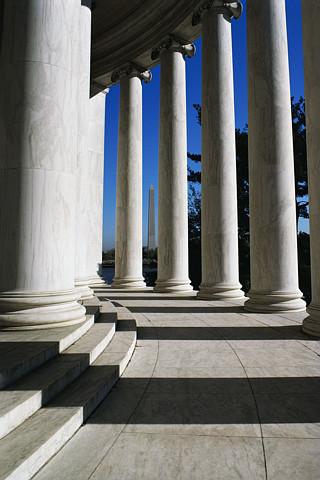Our Method to Solve Case





Besides the academic achievement and career development, obtaining a green card is one of the most important things for many immigrants who come to seek his American dreams in the U.S. However, the immigration process is not very easy for most of them. For instance, Dr. Lin, one of our clients, experienced great uncertainty and concern in his I -140 application process. We present his story here with the hope that it may offer our clients and readers some helpful insights.
I. Background
Dr. Lin has been a researcher in a prestigious institution of the U.S. He got his B.S degree in a famous university in China and the Ph. D. degree of Chemistry in one of the most prestigious universities in Canada.
On October 23, 2006, Dr. Lin sent an email to Attorney Zhang for the first inquiry. At that time, Dr. Lin’s EB-1(a) petition, which was filed with the help of another local attorney, had just been denied by the USCIS. At that time, his H-1B visa was about to expire ten days later. In other words, the expiration date of his H-1B visa was November 3, 2006. Meanwhile, as his wife and children were in H-4 status, they would also be out of status if Dr. Lin lost his status.
In the next 10 days, what should Dr. Lin do? Should he appeal to the AUU as USCIS suggested? Being disappointed by the previous attorney, Dr. Lin turned to our office for help.
A few minutes after receiving the email from Dr. Lin, Attorney Zhang replied his email and suggested he email the deny notice from USCIS and his CV to us for a free evaluation. In addition, Attorney Zhang asked Dr. Lin whether he had done RFE process in the petition.
Dr. Lin replied in one hour with his CV. Attorney Zhang was really astonished by the denial of his case, as he found that Dr. Lin should be qualified for the EB-1(a) based on his academic achievements and contributions in his field. Dr. Lin has published many articles in top journals, including 9 peer-reviewed articles. Furthermore, Dr. Lin was also the member of a very important academic organization, and he had many awards and patents.
Why was Dr. Lin’s petition denied? In order to get the real reason of the denial, Attorney Zhang sent an email to Dr. Lin again on October 24 and asked him to send us the original petition letter, the RFE notice, his response to the RFE and the denial notice. On October 26, we received all the required documents from Dr. Lin. After carefully examining these materials, our attorneys believed that Dr. Lin was qualified for the EB-1(a) petition. It was the defect of the original petition strategy and poor arrangement of the documents that resulted in the failure of the original petition.
II. Options
Our attorneys offered four options to resolve Dr. Lin’s case:
- Following the instruction of the USCIS, appeal to the AAU(Administrative Appeals Unit );
- File a new EB-1(a) petition;
- File a NIW petition;
- In order to keep the legal status, Dr. Lin should find a job as soon as possible, and file an O-1 visa with the new employer’s sponsoring.
Based on Dr Lin’s current status, the first option was not viable. When we appeal to the AAU, Dr. Lin’s H-1B visa will expire. Then, if his I-485 is denied, Dr. Lin will lose legal status. Similarly, option 3 is facing the same problem. As Dr. Lin was born in mainland China, he could not file the I-485 concurrently with the I-140 if he files the NIW petition, as the immigration visa numbers are not available currently. Thus, without a new I-485 pending status, Dr. Lin will also lose his legal status when his current H-1B visa expires. So, in other words, before Dr. Lin finds a new job, the best solution for Dr. Lin is to file a new EB-1(a) petition. In the EB-1(a) category, Dr. Lin can concurrently file the I-140 and I-485. Then, Dr. Lin will get a new I-485 pending status. Meantime, Dr. Lin can file for EAD together with the I-485 petition. Then, Dr. Lin can get a legal status in the U.S and work with the approved EAD card, although his H-1B visa expires.
In order to keep a stable legal status, Attorney Zhang brought up option 4. He suggested Dr. Lin find a job and file an O-1 visa sponsored by the new employer, while the EB-1(a) petition is pending. This suggestion is based on the following considerations:
First, I-485 Pending is not a safe legal status. If Dr. Lin’s new EB-1(a) petition is denied again, and then his I-485 is denied subsequently, Dr. Lin and his family will be out of status if he does not have any other legal non-immigrant status.
Secondly, Dr. Lin needs a permit or a status which allows him to work in the U.S. He has three choices: H-1B,EAD,or O-1. As we said before, H-1B visa is not available for Dr. Lin now, because he has already stayed in the U.S with H-1B visa for six years, without renewing it. According to the relevant immigration regulation, if he wants to apply for a new H-1B visa, he has to leave the U.S for at least one year. Only after this year could Dr. Lin apply a new H-1B visa.
What about an EAD card? Dr. Lin can use an EAD card to work, which is based on the pending I-485. However, if Dr. Lin uses this EAD card to work, he will lose all the other non-immigrant status. Thus, the concern we have mentioned several times comes again. If the I-140 of Dr. Lin is denied, he will be out of legal status.Compared with EAD, O-1 status doesn’t influence his non-immigration status, and an O-1 visa will not expire soon. So, in order to begin to work as soon as possible, an O-1 petition is the best choice for Dr. Lin.
Thirdly, Dr. Lin can apply for premium processing for his O-1 petition. With a $1,000 processing fee, the USCIS processes the case within 15 calendar days. Thus, if the O-1 petition of Dr. Lin is approved with the premium processing, he will get a stable three-year legal status, and he also can start to work immediately.
Lastly, if we do not take any action, Dr. Lin will lose his legal status 10 days later. If the USCIS doesn’t receive the re-filed I-140 and I-485 before November 3rd, Dr. Lin will lose his legal status. So, if we file the O-1 petition before November 3rd, Dr. Lin will not lose his legal status.
Dr. Lin also inquired of the possibility of changing to F-1 status. Attorney Zhang believed this was not a good option. First, there was a high chance for Dr. Lin to get a denial of the F-1 petition because he had already filed his immigration petition. F-1 visa petitioner should not have an intention of immigration. In addition, an F-1 visa holder is not allowed to work, that means Dr. Lin will have big economical loss if he changes to F-1 visa.
III. Solution
After deciding the petition strategy, the next critical step was to submit the EB-1(a) I-140 and I-485 petitions for Dr. Lin before his H-1B visa expired (November 3). We had only 7 days left before the deadline. At the same time, Dr. Lin should file the O-1 petition with the sponsorship of the employer when he finds a new job.
On October 27th, Attorney Zhang assigned Dr. Lin’s case to one of our experienced attorney. As time is running fast, the attorney contacted Dr. Lin instantly after he got the assignment. For the new petition, Dr. Lin would provide three more academic articles, while our in-charge attorney would prepare a strong petition letter to persuade the officer at the USCIS.
In the new petition letter, our attorney emphasized that Dr. Lin had already made significant original contributions to his research field before he came to the U.S. He continued his impressive research and became a truly internationally recognized expert after entering the U.S. His work could reduce 70% the adverse side effect of a drug used to treat kidney failure. This was an important development in medical technology. It would also have a great positive impact on human health. Of course, in other respects, Dr. Lin also had outstanding contributions demonstrated by his 9 recommendation letters and 13 academic articles submitted to the USCIS.
In order to submit Dr. Lin’s petition before his H-1B visa expired, our attorney worked day and night and finally finished all the documents in two days. On October 30th (3 days before Dr. Lin’s H-1B visa expired), we filed the petition package of Dr. Lin to USCIS Nebraska Services Center (NSC) by FedEx. The petition package included a strong petition letter, petition forms, 9 recommendation letters, the CV of Dr. Lin and other supporting materials. From October 26th when Dr. Lin retained us formally to October 30th we filed the petition to the USCIS, the whole process took only four days, including a weekend.
Two days later, based on the track number of FedEx, we affirmed that the USCIS had received Dr. Lin’s petition on November 2nd. Thus, Dr. Lin still had a legal I-485 pending status when his H-1B visa expired on November 3rd. And on November 16th, our office received the receipt notice from the USCIS, which noticed us that the petition of Dr. Lin would be transferred to the Texas Services Center.
In addition, Dr. Lin successfully found a new job when we were preparing the EB-1(a) petition documents, and the new employer agreed to support his O-1 petition. With this good news, our attorney prepared all the required documents in two days and filed the O-1 petition with premium processing service on November 1st. Eventually, the O-1 petition of Dr. Lin was approved on November 14th. Thus, even if the re-filed I-140 and I-485 were denied, Dr. Lin still has a legal status in the U.S.
When Dr. Lin’s EB-1(a) petition was under processing in USCIS, Dr. Lin also suggested we file an EB-1(b) for him. Attorney Zhang did not encourage him to do so for the following considerations. First, we were confident of the approval of the re-filed EB-1(a) petition. Secondly, EB-1(b) petition needs an employer to sponsor. With an EB-(b) green card application, the applicant can change his job only if his I-485 has already been pending for 180 days and the new job should be the same or similar occupation as the primary one, otherwise, the applicant’s green card is abandoned. Thus, it is not convenient for Dr. Lin to change job if he files an EB-1(b) petition. Thirdly, Dr. Lin has paid a lot of money for his immigration petitions. One more petition will cost more. Finally, Dr. Lin took the suggestion of Attorney Zhang and did not file an EB-1(b) petition.
Fortunately, the new EB-1(a) petition of Dr. Lin was approved on March 1st as anticipated by us. From then, Dr. Lin and his family are away from the risk of being out of status. As the I-140 of Dr. Lin has been approved, we predict that his family will get their green cards soon.
IV. Conclusion
It took exactly four months and five days from the time when Dr. Lin contacted us initially on October 23, 2006 to the time when his EB-1(a) was approved on March 1, 2007. What a pleasant and smooth process!
During the whole process, we have worked with Dr. Lin closely and effectively as a team. The success of the petition can be attributed to our team work. The in-charge attorney prepared and revised all the paper documents in 7 days. His professional and strong petition letter laid solid foundation for the approval of Dr. Lin’s EB-1(a) petition. Our quality control attorney double checked all the petition materials before filing. Our assistants worked on the forms, notices and the client records in our CRM system quickly and carefully. Moreover, Dr. Lin’s prompt cooperation and efficient work during the petition process played a critical role too.
We are very excited about the quick and happy result of Dr. Lin’s EB-1(a) case. The best reward we get in our work is to see our client’s case approved with our help. Immigration application is a complicated process. It is hard to control the result, but an experienced immigration attorney really can help the applicant a lot in this challenging process.
(In order to protect the client’s privacy, all the confidential information of the client has been disguised)
For more information on the O-1 visa, please click one of the following links:
- Description
- Procedure for obtaining O-1 Status
- Requirements for obtaining an O-1Status
- Obtaining an O-1 visa
- Dependents of O-1 visa holders
- Duration and extension of O-1 Status
- Change to other status from O-1 Status
- Services that We Provide
- Attorney and filing fees
- Frequently Asked Questions and Answers
- In-depth Case Analysis




